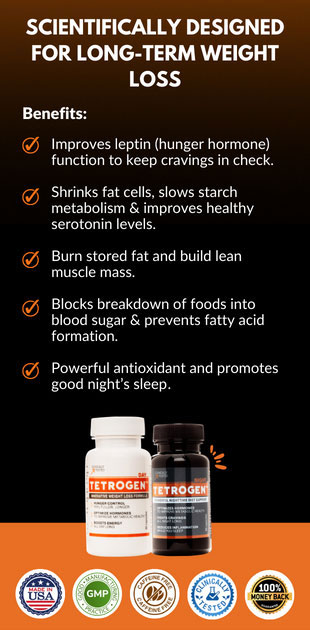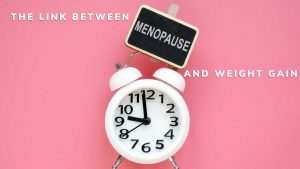
Practical Guide To Increase Metabolic Rate After The Age Of 40
It’s no secret that your metabolism begins to slow as you reach your senior years. This is a natural process that occurs as the body undergoes many changes. Unfortunately, for some people, this can lead to unexplained weight gain and difficulty maintaining their current weight. If this sounds like you, don’t worry – we have some tips to help increase your metabolic rate! This article will discuss how to boost metabolism after 40 with specific lifestyle changes, food choices, and supplements. So read on for helpful advice on keeping your metabolism running smoothly!
Why Does Metabolism Decline at Age 40?
There are a few reasons your metabolism may decline after age 40. One reason is that your body composition changes as you get older. After the age of 40, most people begin to lose muscle mass and gain fat mass. This shift in body composition can decrease metabolic rate because muscle tissue is more metabolically active than fat tissue.
Additionally, declining hormones such as testosterone and thyroid hormone can also contribute to a decrease in metabolism.
Another reason for a decreased metabolism with age is the loss of mitochondria. Mitochondria are organelles in your cells that are responsible for producing energy. As you age, you lose mitochondria and become less efficient at producing energy. This can lead to fatigue and decreased metabolism.
Metabolism may also dip after age 40 because of changes in gut bacteria. Gut bacteria play an essential role in digestion and the absorption of nutrients. They also produce short-chain fatty acids, which are used for energy by the body. As you age, your gut bacteria’s composition changes, leading to decreased metabolism.
One of the most common causes of a slow metabolism is stress. When you’re under stress, your body releases the hormone cortisol. Cortisol signals your body to store energy as fat and to use less energy, causing weight gain and a decrease in metabolic rate. Stress can also cause gut bacteria changes, leading to digestive problems and decreased metabolism.
In addition to stress, a sedentary lifestyle can also lead to a slow metabolism. When you don’t move your body, you burn fewer calories. This can lead to weight gain and a decrease in muscle mass, which further decreases your metabolic rate. If you want to keep your metabolism high, it’s essential to get regular exercise and avoid a sedentary lifestyle.
Finally, another major cause of a slow metabolism is poor sleep. When you don’t get enough sleep, your body doesn’t have time to repair and regenerate. This can lead to fatigue and a decrease in metabolism. So if you want to keep your metabolism high, you must get enough sleep every night.
Tips to Increase Metabolism After 40
Now that we’ve discussed some of the major causes of slow metabolism let’s talk about how to increase your metabolic rate.
Increase your protein consumption
Now that we know some of the reasons why metabolism slows down after age 40 let’s discuss how to increase it. The first step is to ensure that you are getting enough protein. Protein is essential for muscle growth and maintenance. As we discussed earlier, muscle tissue is more metabolically active than fat tissue. Aim to consume 0.36 grams of protein per pound of body weight (or 0.80 grams per kilogram) daily. Good protein sources include meat, poultry, fish, eggs, dairy, and legumes.
Eat smaller frequent meals
Eating frequent meals helps to increase metabolism because it leads to more frequent periods of digestion. Digestion is a process that requires energy from the body, and therefore, can help to boost metabolism.
Eating nothing for long periods of time can actually decrease your metabolism. This is because the body goes into “starvation mode” when it doesn’t receive food, and in order to conserve energy, the body starts to slow down its metabolism. So, if you’re looking to boost your metabolism, it’s best to eat small, frequent meals throughout the day.
Exercise regularly
In addition to getting enough protein, you also need to exercise regularly. Exercise helps build muscle mass, which in turn can help boost your metabolism.
Strength training is especially effective at increasing muscle mass and boosting metabolism. Aim to do strength training two to three times per week.
In addition to strength training, you should also get regular aerobic exercise. Aerobic exercise helps increase your cardiovascular fitness and can also help boost your metabolism. Aim for 30 minutes of aerobic exercise most days of the week.
Consider taking supplements
You might also want to consider taking supplements to help increase your metabolism. Two helpful supplements are caffeine and green tea extract. Caffeine is a stimulant that can help raise metabolism and boost energy levels. Green tea extract is a source of catechins, which are antioxidants that have shown to promote weight loss and increase metabolic rate.
Taking Probiotics in Your Diet
Another supplement you may want to consider taking is probiotics. Probiotics are live bacteria found in fermented foods such as yogurt, sauerkraut, and kimchi. Probiotics can also be taken as supplements to improve gut health and boost metabolism.
Add “Metabolism-Boosting” Foods to Your Diet
Try adding certain “metabolism-boosting” foods to your diet. These foods are high in protein, fiber, and healthy fats. Some examples include salmon, avocados, nuts, seeds, and olive oil. Adding these foods to your diet can help increase your metabolism and promote weight loss.
Chilli peppers: These contain capsaicin, a compound that has been shown to boost metabolism.
Dark chocolate– It contains cocoa flavanols, which can help improve insulin sensitivity and increase metabolic rate.
Ginger- This spice contains compounds that promote thermogenesis or heat production in the body.
Spices- Spices such as cinnamon, turmeric, and black pepper can also help boost metabolism.
Getting enough water and sleep are essential.
Lastly, be sure to get enough water and sleep. Sleep is essential for repair and regeneration and can also help boost your metabolism. Aim to get seven to eight hours of sleep per night. Dehydration can lead to fatigue and a decrease in metabolism. Getting adequate sleep is also crucial for maintaining a healthy metabolism.
In order to see results, it is important to be consistent with these lifestyle changes and make sure that you are sticking with them long-term. It takes time for your body to adapt to new habits, so don’t get discouraged if you don’t see results immediately. Just keep at it and eventually, you will start to see a difference.
I hope you enjoyed this article and found it helpful. Please feel free to reach out in case of more queries. We would love to hear from you!

Mike Dorfman is BS in Biochemistry from the University of Colorado. Mike’s has worked as a personal trainer for Gold’s Gym and helped many clients achieve their weight-loss and fitness goals.
To health first, weight-loss second. Mike and Tetrogen are here to help you make the transition to the healthier, happier, and thinner you!
SIGN UP NOW FOR YOUR FREE WEEKLY EMAILS!
Get brand-new healthy recipes (easy ones), tips 'n tricks, and more...
Bonus: Get discount coupons for our products on a subscription!
You will receive one tip per week. You can unsubscribe at any time. We will never share your information with third parties.












